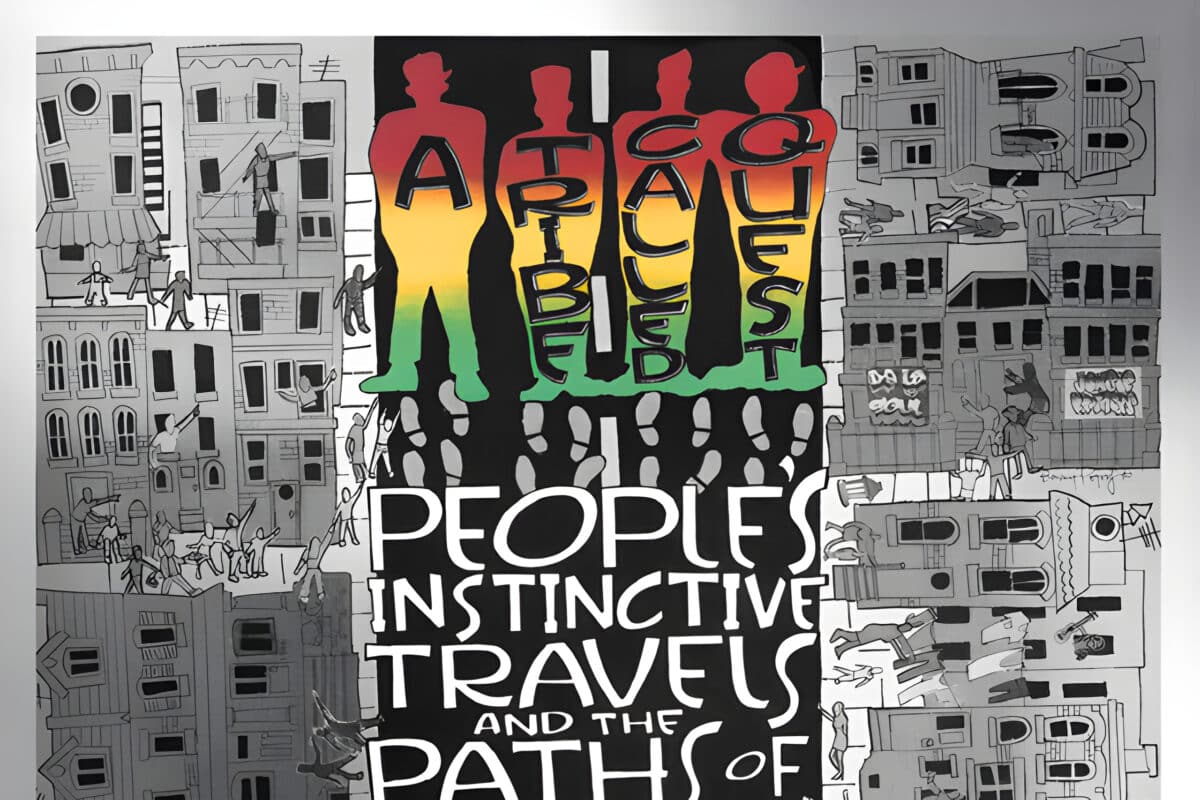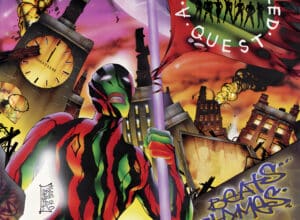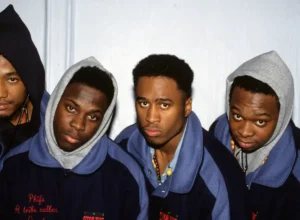Released: 1990
“I Left My Wallet in El Segundo” by A Tribe Called Quest is a classic tale of a simple mistake turning into an adventure. The narrative is told by Q-Tip, a member of the iconic group, and is an amusing yet vivid account of losing his wallet during a spontaneous road trip. The song uses storytelling to convey a light-hearted yet relatable experience of an unexpected journey filled with humorous events.
The song begins with a playful hook where Q-Tip repeatedly confesses to leaving his wallet in El Segundo, which is the central motif and comic relief of the song. The repetition of the line “I left my wallet in El Segundo” underscores the gravity of this oversight while infusing the story with a rhythmic catchiness. This refrain acts like an anchor, setting up the listener for the whimsical journey that unfolds.
As Q-Tip begins the first verse, he sets the stage with his mother going away for a month-long trip. This introduction offers a pretext for his unsupervised freedom and subsequent escapade. It’s an instant hook into the narrative, building the backdrop of mischief by setting up his independence. This establishes a lighthearted rebellion which is a common theme in hip-hop, portraying youthful exuberance and the temptation of adventure.
Calling up his friend Ali to join him for the trip injects camaraderie into the tale. The fact that they’re taking his mother’s 1974 Dodge Dart without any particular destination in mind highlights a spur-of-the-moment decision to escape everyday life. It’s a nod to the youthful urge for spontaneity and freedom.
As the journey continues, their drive takes them through Brooklyn and eventually out of the city. Shaheed is mentioned as a friend who provides the necessary funds, signaling the tight-knit community vibe prevalent in A Tribe Called Quest’s lyrics. The mention of these areas offers a nostalgic glimpse into New York City geography and lifestyle during the late 1980s and early 1990s.
Once the pair reach the dusty road and encounter the small man in the sombrero, the adventure turns into a travelogue with Q-Tip as the unwitting explorer. This interaction with Pedro not only introduces an element of cultural crossover but also enhances the narrative with a playful portrayal of an unexpected detour. “El Segundo” becomes more than just a geographical reference; it transforms into an exotic locale in their story.
Stopping for enchiladas in what they describe as a ‘nice little pub in the middle of nowhere’ shows how simple pit stops turn into crucial parts of the story. Q-Tip’s attention is diverted by a beautiful waitress, creating a distraction that ultimately leads to the forgotten wallet. This interaction humanizes the experience, blending typical human nature with the tale’s comedic core.
As they realize the wallet has been left behind, there’s a relatable moment of panic and dismay. The lyrics depict the duo’s frenzied thoughts as they react to the unfortunate discovery. Ali’s cursing adds humor, serving as the audience’s surrogate for frustration over a common human blunder.
On the return journey, there’s a blend of both chaos and humor. The rhythm of “breaking on out, we was northeast bound” portrays urgency, while the banter between friends offers a realistic view of how these scenarios play out in real life. The driving force of the narrative isn’t just the physical quest but the storytelling that creates visual scenes for the listener.
The song concludes by reflecting on the whole episode, offering a moment of introspection. Returning home doesn’t resolve the predicament of the lost wallet, leaving the tale humorously unresolved. The lyrical journey from New York to El Segundo becomes a metaphor for youthful journeys where lessons are learned along the way, and in true hip-hop fashion, life continues with rhythm and beats. A Tribe Called Quest manages to capture an everyman’s tale with style and a strong cultural undercurrent, wrapping a simple narrative in musical richness.








